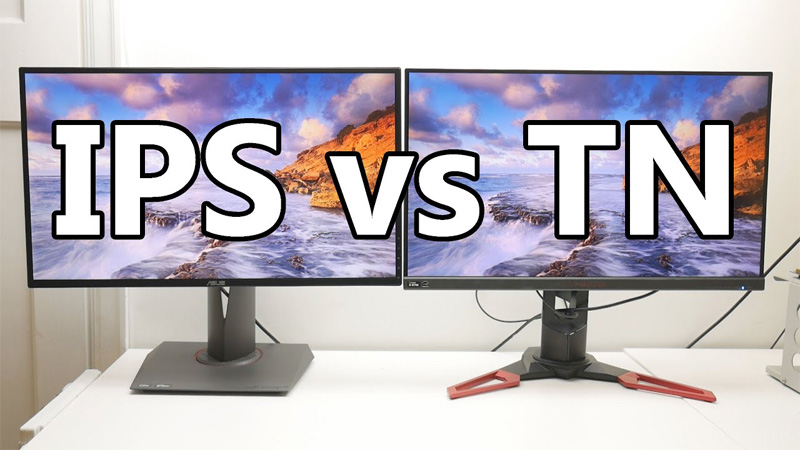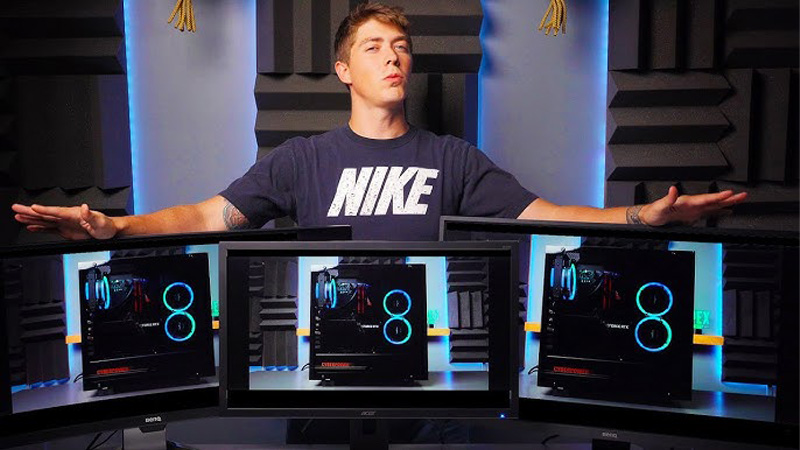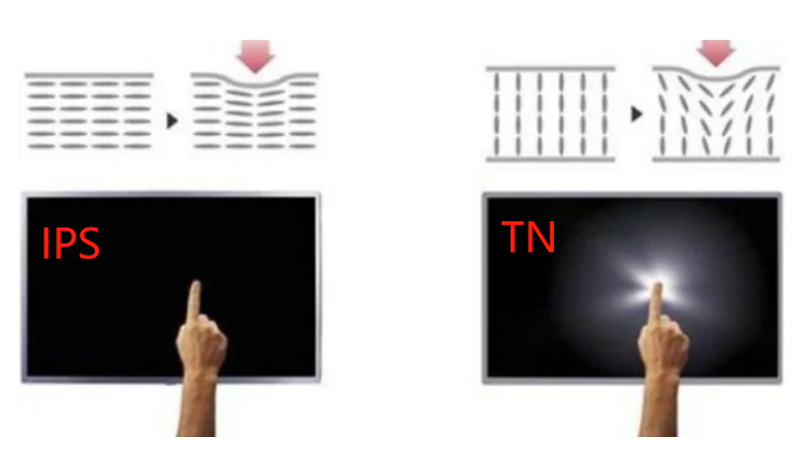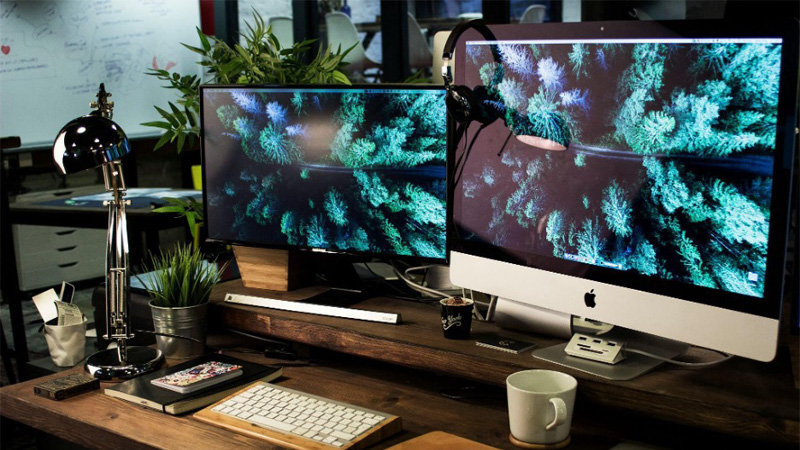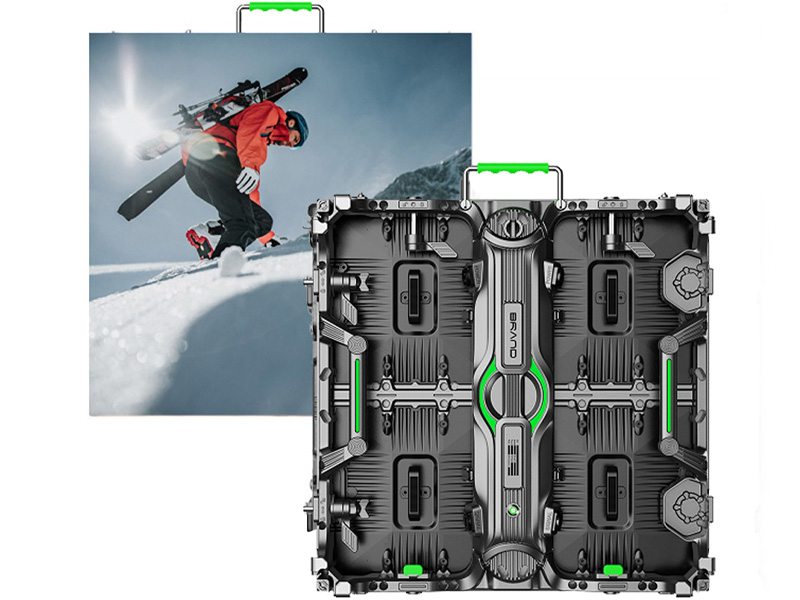TN Panel Vs IPS: Which One Right You Best?
Display technology has changed significantly over the years, with some displays being much superior to others. In 2024, two panels were made to the top, including a TN panel and IPS displays. TN panels are referred to as twisted nematic panels, and IPS are referred to as in-plane switching panels. Both panels play a major role in the LED and LCD market. The display market is only projected to grow exponentially from 2024 to 2032 to approximately 74.87 billion.
Both panels provide various benefits to professionals, which we will discuss further in this blog. We will dive deep into this technology and understand various aspects, including its functions. The blog will also highlight how each differs from one another, and which one is better.
Content Index
1. Understanding TN Panel and IPS Display Technology
2. What Differentiates Each of These Display Panels?
3. How Precise is The Color and Viewing Angle?
4. Response Time and Refresh Rates
5. How Much Power Does Each Consume?
6. Which Is More Affordable?
7. Save Energy with This Efficient LED Display
We will dive deep into this technology and understand various aspects, including its functions. The blog will also highlight how each differs from one another, and which one is better. But first, let us understand the basics of TN and IPS panels.
Twisted nematic panels are panels used in LED and LCD screens to provide various advantages. Understanding your work and how you will use these plays a crucial role in deciding your LCD panel. Why? Because both technologies are different in terms of performance and benefits.
TN panels are known for their affordability, quick response time, and high refresh rates. These pointers make it a popular option for gamers. These are not your number one choice when it comes to professional tasks such as editing and design.
If you are wondering why I can’t use it for professional tasks, these panels lack color accuracy and specific viewing angles. This brings us to the IPS panels, which fit right in and are best for professionals. Video editors and graphic designers prefer this panel for their LCD because of its accurate color distinguishing feature and wide viewing angles.
However, both panels have their drawbacks. Therefore, choosing wisely is crucial. For example, if your daily tasks require quick response time and higher refresh rates, go for TN panels. But if it is the other way around and you don’t require the following, go for IPS panels. You will be getting much more professional features with this one.
In short, if you are into gaming, which requires quick response time and high refresh rates, TN panels work best! However, if your profession includes photography, video editing, or graphic designing, IPS panels are your best option. This is because of its color accuracy and viewing angles.
The two main things to consider when comparing Twisted Nematic panels and In-Plane Switching panels are performance and speed.
-
TN Panels
Gamers prefer using TN panels because of their speed. However, when it comes to viewing angles and color accuracy, they lack those qualities. If this panel is used for professional purposes such as editing it cannot give the same results as IPS panels.
-
IPS Panels
IPS displays, on the other hand, are superior at offering wide viewing angles and accurate colors. Making them perfect for high-end picture and video editing. This panel has its perks in the professional field but cannot perform nearly as good as TN panels when it comes to gaming.
Another drawback of IPS panels is that they are not cost-friendly. The main reason for their expensive price is the clear image and high-quality graphics. Thus, if you can afford these panels and it suits your requirements, why not?
For the most part, IPS panels provide better color representation. They display a greater variety of colors since they are made to provide a larger color spectrum. This makes sure that the colors viewed on the monitor are like the original image’s hues, which is crucial for graphic design and photography professionals. However, the smaller color spectrum of TN panels leads to less accurate color representation.
Viewing angles are also an important aspect of display panels. Wider viewing angles of IPS panels ensure that the visual quality is maintained even when viewing the screen from the side. For example, If you work in a professional environment and work in a team, you will be required to share your screen with different people. On the other hand, when you view TN panels from the side, distortion and color shifting occur due to a narrow angle.
In conclusion, IPS panels offer superior color accuracy and wider angles, making them the preferable option for professionals who value picture quality. Regardless of TN panels being reasonably priced and having quicker responses.
When a monitor’s reaction time and refresh rate are quick, the entire experience is different. Superior refresh rates and reaction times are hallmarks of TN panels. Because of this, they’re a great option for professional gaming, where every millisecond matters. However, keep in mind that the increased speed of TN panels comes at the expense of viewing angles and color accuracy.
● TN Panels: High refresh rates (144Hz) and quick response times (1 ms).
● IPS Panels: Low refresh rates (60Hz) and slow response times (4 ms).
There is a huge difference when it comes to the speed of TN panels, but IPS panels make up for this through exceptional performance. For professionals who prefer accurate color representation over speed, IPS is the go-to option. However, new developments in technology have created IPS panels with refresh rates and response times faster than TN panels
● TN Panels: Allow quick response times and high refresh rates
● IPS Panels: Provide accurate color representation and wide angles.
Energy consumption plays a crucial role when deciding between an IPS and TN panel. Since IPS panels have more intricate pixel structures and backlighting, they use more power than TN screens. The increased power usage of IPS panels impacts the battery life of devices such as laptops and tablets.
However, TN panels use less energy, which makes them a better option for consumers who value power conservation. Despite that, the brightness, resolution, and screen size may all affect how much power is used.
● IPS Panels Consume more power, which can impact the battery life of devices.
● TN Panels: They save power and are good for the battery life of devices.
Note: Other factors like brightness, size of the screen, and resolutions also affect power usage.
It is time to consider which one is more cost friendly. TN Panels win the battle of price. They are usually less expensive to create, which ultimately keeps the retail price low as well. TN panels are preferred by customers on a tight budget or those who need more than one monitor.
It’s important to remember that although TN Panels might be less expensive than IPS Panels, they cannot provide the same degree of performance or visual quality.
IPS panels, on the other hand, are more expensive because of their improved color accuracy, broader viewing angles, and higher overall display quality. Therefore, if your line of work demands a high-quality display, the cost of an IPS monitor can be justified. These quick pointers will assist you in deciding.
● If you are on a budget, choose TN panels.
● When you require more than one monitor, TN panels can be a better option.
● If color representation and quality are important elements for you, invest in an IPS panel.
When deciding between an IPS and a TN panel, your requirements and daily usage matter the most. For gamers who prioritize speed, a TN panel might be an ideal option. However, they do come with certain disadvantages. Poor color representation and narrow angles of TN panels compared to IPS panels might be a deal-breaker for some.
However, an IPS panel is a superior option if you work as a professional who requires color accuracy and wider viewing angles. These panels are ideal for activities requiring precise color management. However, due to their slow response and reaction time, it is not a good option for gaming purposes.
The decision comes down to which one benefits you, taking into consideration work or fun. Suppose you have a budget and are a professional for an IPS panel. If you want a more affordable option, TN panels will do the job.
This LED display is a premium model and stands out because of its energy-efficient feature. Without compromising on light and performance, this LED saves up to 30% energy compared to other LED displays on the market. LEDSINO offers this at the best prices and a wide range of other models with different features.
This LED improves contrast ratio all around, easily producing 4K plus video walls and displaying the most realistic details and brightness levels in every scenario;
It also offers Point-to-point calibration technology that produces clean pictures with exceptional gradient effects. Color enhancement technology enhances color accuracy and brightness, delivering clear and realistic visual effects in presentations and entertainment.
![]() 3D Billboards Best Combination
3D Billboards Best Combination
![]() Energy Saving Display 30% Design
Energy Saving Display 30% Design
![]() Ultralight Aluminum Profile Cabinet
Ultralight Aluminum Profile Cabinet
![]() Standard Size: 480×320/960*960mm
Standard Size: 480×320/960*960mm
![]() Front Convenient Maintenance
Front Convenient Maintenance
![]() Hard Connection, No Need Cables
Hard Connection, No Need Cables
![]() Can Removable Back Power Supply Box
Can Removable Back Power Supply Box
![]() With 3 Years Warranty and 5% Spare Parts
With 3 Years Warranty and 5% Spare Parts
8. Bottom Line
Now that you have a good understanding of both panels. Choosing the right one will be easier for you. If you want something that performs well, go for IPS panels. If you are on a budget but get speed as a perk, go for TN panels. Both are good options for display purposes. There is no correct answer. It all depends on how it benefits you and if it is worth the investment in the long run.
Contact
 Building D, Hongfa Science Park,
Building D, Hongfa Science Park,
2035 Songbai Road, Shiyan, Bao’an District, Shenzhen, Guangdong, China.

